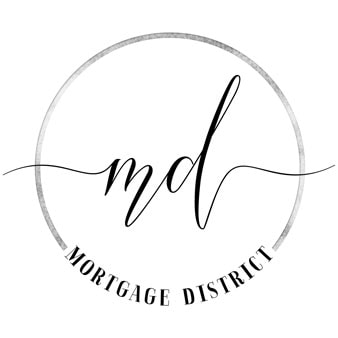From filling out the application to signing the papers at closing time, it usually takes two to six weeks to approve and finalize (fund) a mortgage. In today’s fast-paced world, that may seem like an eternity. However, mortgages are complex legal agreements. The process of gathering the necessary paperwork, checking various regulatory criteria, and following legal standards takes time. But people don’t like to wait, especially when their home purchase depends on the decision!
Financial technology companies have begun to spring up on the internet in response. They advertise faster, easier mortgages – even claiming to get approvals in only a few clicks. These companies are alternative mortgage lenders that may use some of the traditional mortgage criteria plus sophisticated algorithms to determine your suitability for a mortgage. Online lenders can give you a response quickly because they collect your information through forms on their websites. It doesn’t take more than a few minutes to crunch the numbers and give you an almost instant pre-approval. Finalizing the mortgage may take a little more time, but it is often faster than a traditional mortgage lender can manage.
Is there a problem with using an online lender? They offer faster speed and claim lower to have lower interest rates. It sounds good and may be attractive to homebuyers, though they are not the best solution for everyone.
Online isn’t Always the Right Fit
If you are shopping for a mortgage and looking at online brokers, you may end up filling out application forms on multiple websites. That could add up to a lot of time – and tedium. It’s one of the reasons why online lenders may not be the best solution for every prospective borrower. There are other reasons as well.
Your Context Matters to Your Application
When applying for a mortgage, your situation may not always fit the predefined fields or choices on an online form. Not having the ability to provide additional information or explain your circumstances may hurt your chances of approval at a reasonable interest rate.
Interest Rates Aren’t Always as Advertised
Online lenders advertise low interest rates. Are the rates lower than traditional lenders like your bank would offer? Comparison shopping is a good idea. Like traditional mortgage lenders, online lenders base their interest rates on a multitude of factors (credit, income, insurability, location, etc). Once your application is evaluated, the advertised rate may not be the rate you’re offered.
Hidden Costs
Online mortgage lenders may have additional fees and charges that you may not be immediately aware of. The extra costs can add up and make the mortgage more expensive than expected. Look for or ask about extra costs in advance to decide if they still make the mortgage a good choice. Often real estate lawyers will need to charge more to the borrower because there is much more involved in the closing process as compared to conventional banks/lenders.
Support May Be Difficult to Find
First-time homebuyers typically have a lot of questions. Online mortgage lenders may provide resources to self-educate or an online chat to connect with a person for support. However, if you don’t know what to ask, it can be difficult to get help. It may be a challenge to get advice or concrete recommendations on the type of mortgage that is best for you. Online lenders don’t generally offer any support for after the mortgage closes.
With all of that said, online mortgage lenders are a good solution in some circumstances. They offer quick mortgages at competitive interest rates – when your financial situation is simple. However, online mortgage rates don’t always end up being as low as advertised. Their lending criteria may not be as flexible as you need, and they lack the support needed to help inform and advise.
Rather than filling out endless forms on the internet, the sure way to access as many mortgage options as possible is to work with a mortgage broker. Compare what an online lender can offer you, then see if your mortgage broker can do better. Your mortgage broker should answer any questions about mortgages, interest rates, amortization, and more. They can help you decide on the right type of mortgage – whether fixed-rate or variable. Your broker can also help you understand what documentation you need to supply to lenders and ensure the whole process goes smoothly. Try getting all of that from an online chatbot!


